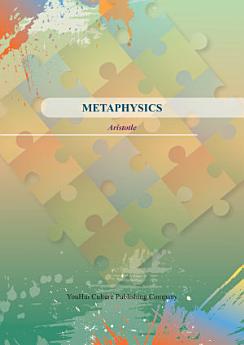METAPHYSICS
About this ebook
By nature animals are born with the faculty of sensation, and from sensation memory is produced in some of them, though not in others. And therefore the former are more intelligent and apt at learning than those which cannot remember; those which are incapable of hearing sounds are intelligent though they cannot be taught, e.g. the bee, and
any other race of animals that may be like it; and those which besides memory have this sense of hearing can be taught.
The animals other than man live by appearances and memories, and have but little of connected experience; but the human race lives also by art and reasonings. Now from memory experience is produced in men; for the several memories of the same thing produce finally the capacity for a single experience. And experience seems pretty much like science and art, but really science and art come to men through experience; for 'experience made art', as Polus says, 'but
inexperience luck.' Now art arises when from many notions gained by experience one universal judgement about a class of objects is produced. For to have a judgement that when Callias was ill of this disease this did him good, and similarly in the case of Socrates and
in many individual cases, is a matter of experience; but to judge that
it has done good to all persons of a certain constitution, marked
off in one class, when they were ill of this disease, e.g. to
phlegmatic or bilious people when burning with fevers-this is a matter of art.�







